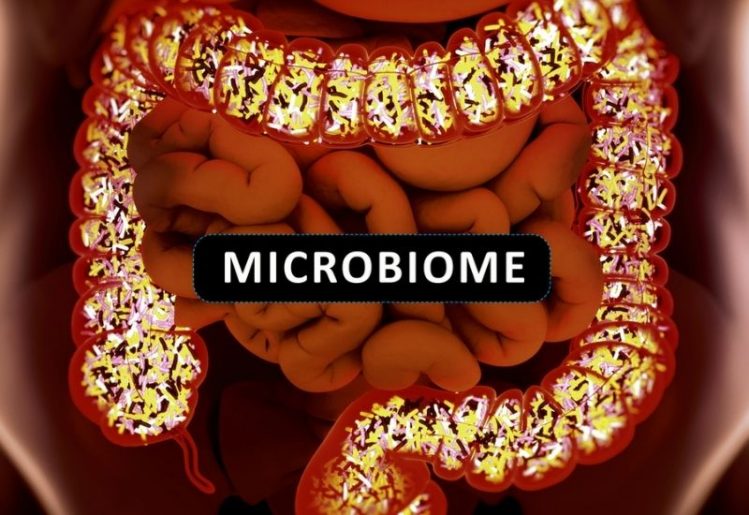While many people understand the importance of probiotics for a healthy lifestyle, they do not realize that probiotics are useless without prebiotics. You may be surprised at how a diet rich in both prebiotics and probiotics can translate to better health and wellness. Learning the differences between the two and why each is important will help you to make better choices about your diet and supplements.
Understanding Probiotics, Prebiotics and Their Differences
 Although you may think of bacteria as a bad thing, there are also good types of bacteria that take up residence in your gut. These gut microbiota lives inside of the body’s gastrointestinal tract and form the gut microbiome, a virtual “second organ” that delivers a number of health benefits, including supporting immune health, breaking down and digesting food and reducing inflammation levels.
Although you may think of bacteria as a bad thing, there are also good types of bacteria that take up residence in your gut. These gut microbiota lives inside of the body’s gastrointestinal tract and form the gut microbiome, a virtual “second organ” that delivers a number of health benefits, including supporting immune health, breaking down and digesting food and reducing inflammation levels.
To survive and thrive, your gut microbiome requires two things from the food you eat: probiotics and prebiotics. Probiotics are beneficial live microorganisms and yeasts that are present in certain foods or supplements. These bacteria are able to survive in the gut and provide a variety of health benefits.
In contrast, prebiotics are substances that serve as the food source for these types of good bacteria in the intestinal tract. Because the digestive system is not equipped to break down the specialized plant fibers in prebiotics, they are able to make it through the digestive tract into the colon where they meet the good bacteria. These “friendly” bacteria are then able to break down the prebiotics and use them as food so that they may flourish. In short, you need an ample supply of prebiotics if you want the probiotics to fire on all cylinders.
Why Probiotics Are Useless Without Prebiotics
Once you understand how prebiotics are needed to fuel the growth and health of the essential probiotics, you can understand that probiotics are useless without the necessary prebiotics. In addition to providing the food for these healthy bacteria, the breakdown of the prebiotics initiated by the probiotics is important because it triggers the production of three short-chain fatty acids (SCFAs) known as acetate, propionate and butyrate. While they all act as a primary source of energy in your digestive tract, butyrate is the most important of the three.
There is no shortage of ways that butyrate can benefit your overall health. Butyrate is known for its anti-inflammatory and anti-cancer properties within the gut. Butyrate can reduce oxidative stress while mitigating damage in the gut at the hands of free radicals. This impact can also offer protection to the gut environment to reduce the risk of bowel cancer.
Butyrate is distinguished as being the primary source of energy for the cells that line the gut, known as the colonocytes. These cells need butyrate to be able to function properly. This vital SCFA also works hard to guard the cells from foreign substances. This protection helps to keep the gut healthy and free of disease.
The right levels of butyrate also help to prevent leaky gut. As butyrate delivers the necessary fuel to the gut lining cells, it supports the health of this lining. This preservation lowers the risk of leaky gut, which has been associated with a variety of health concerns. By boosting the output of some gut hormones, butyrate may also be beneficial in improving the body’s blood sugar levels. This balance is crucial in fighting the onset of type 2 diabetes as well as obesity.
The benefits of butyrate go far beyond physical health. This fatty acid has also been shown to potentially target the neural pathways that are linked to the onset and progression of a host of mental illnesses. This list includes Alzheimer’s, Parkinson’s, autism and more. By reducing the incidence of these disorders, butyrate can positively influence the health and function of the brain.
How to Get More Prebiotics Into Your Diet
 Unlike probiotics, which can be more difficult to find naturally in your favorite foods, many of the most common nutritious foods are full of prebiotics. Foods that will supply the means to feed the friendly bacteria in your gut include those that are rich in fiber. This includes fruits, vegetables and whole grains. For example, a simple potato is a good choice because the starch is more resistant to digestion. You can also ensure that you are getting enough prebiotics into your diet by taking a daily supplement that includes this nutrient. Ideally, you should choose a product that contains both probiotics and prebiotics to support your intestinal flora optimally.
Unlike probiotics, which can be more difficult to find naturally in your favorite foods, many of the most common nutritious foods are full of prebiotics. Foods that will supply the means to feed the friendly bacteria in your gut include those that are rich in fiber. This includes fruits, vegetables and whole grains. For example, a simple potato is a good choice because the starch is more resistant to digestion. You can also ensure that you are getting enough prebiotics into your diet by taking a daily supplement that includes this nutrient. Ideally, you should choose a product that contains both probiotics and prebiotics to support your intestinal flora optimally.
Lastly, it is also recommended to up your fiber intake, as this has been shown to assist in boosting the body’s production of butyrate.


